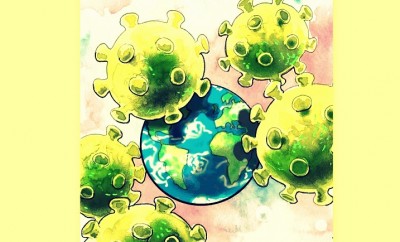
After COVID, What Should American Foreign Policy Do?
The pandemic reminds us that American leadership can determine whether the arc of history bends toward something better or something worse.
COVID-19’s long-term effects on the international system remain unknown, in part because the course of the disease remains unknown. Much still depends on factors such as potential new waves of infections as the northern hemisphere winter approaches, improved treatments, and especially the development of an effective vaccine.
At this point, some nine months into the plague, we do know that COVID-19 is not a geopolitical blip of little consequence. It has already inflicted a ghastly human toll and caused disastrous social and national dislocations. It is sharpening the key rivalry of the 21st century, the U.S.-China competition, and highlighting strains that were already disordering the world.
But it is unlikely to cause a fundamental altering of the global system on par with what happened after World War II destroyed two leading great powers, Germany and Japan, catalyzed the collapse of the European colonial empires, and propelled the United States to international primacy. And the changes that it does cause may not make the international landscape dramatically more menacing. There is even a scenario in which the pandemic weakens autocracy and populism more than democracy, underscores America’s structural power even as it temporarily damages its soft power, catalyzes a more formidable balancing coalition against China, and leads to a more realistic form of globalization as well as renewed cooperation between the world’s democratic states.
Συνέχεια ανάγνωσης εδώ
Πηγή: defenseone.com




